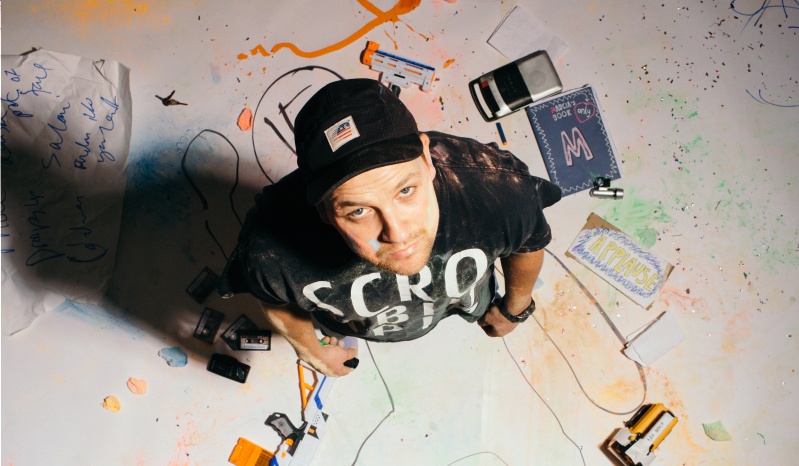
There is a popular idea in performance studies that there is no such thing as an audience. In other words, we are all part of the dramatic experience and performance atmosphere, regardless whether we are active participants or passive observers. There is little doubt that the audience is an integral element in Dark Corners. Indeed, the suggestion that it is a ‘one-man-show’ performed by Polarbear (a.k.a. Steven Camden) would be misleading. Sure, there is only one professional dramatist, but the term ‘one-man-show’ utterly fails to encapsulate the interaction and participation of the audience in this unique, intriguing and entertaining hour of storytelling.
Everyone in the audience was, at least once, co-opted in to help. One guy was given control of the lighting. Another chap was given responsibility for playing the audio clips. A young lady was given a script to read onto an answering machine, and there were many other participatory innovations. What was not quite clear was the reasoning for the name of the show, Dark Corners. Thus I was left wondering if that name simply refers to the space where more shy audience members may wish to hide to avoid the ever-roaming eye of Polarbear.
“I’m messy”, Polarbear told us as we sat in-the-round circumnavigating a sea of white paper on a level performance space. He was telling the truth. By the end of the show the clean white paper had scribble, graffiti, coloured powder, props and paint all over it. It became the footprint of the experience.
Dark Corners was billed as a performance by “one of the UK’s most acclaimed spoken-word artists”, who also happens to be the author of “young adult novels”. Ostensibly, the whole feel of the concept seems to have a mid-teenage target audience in mind, presumably the same demographic who might read Polarbear’s novels. Indeed, in his narrative he portrays his main character (the context is autobiographical) at three different stages of teenage life. Somewhat confusingly all three alter-egos meet each other and co-exist simultaneously. This was a difficult sell to the imagination, but his energetic performance-style helped him pull this off, which was quite a feat actually. Despite the teenage theme, this was a show suitable for anyone about to become a teenager or who has ever been one at some stage in their life. (The publicity suggests an age recommendation of 11+).
The term spoken-word artist is a slightly problematic one, due to the association with spoken word poetry, performance poetry and ‘poetry slams’. Do not expect poetry. You will be disappointed if you do. Rather this is a variation of spoken-word that centres on fast moving narratives. This is more ‘performance short story’ than ‘performance poetry’, with added improvisation and liberal ad lib. It works because the artist leading us through his vivid imagination has genial charm, wit, humour and an abundance of storytelling skill.
Does the story have any significant message or meaning? Yes. But do not come expecting a profound life-changing epiphany. It simply asks us to reflect on the dilemmas of decision-making and whether or not it is worth taking risks in life. It is basic, but as Polarbear oft reminds us, “there’s something in that”. Moreover, it poses its questions in a fun and entertaining way. ★★★☆☆ Robert Gainer 24th May 2018

